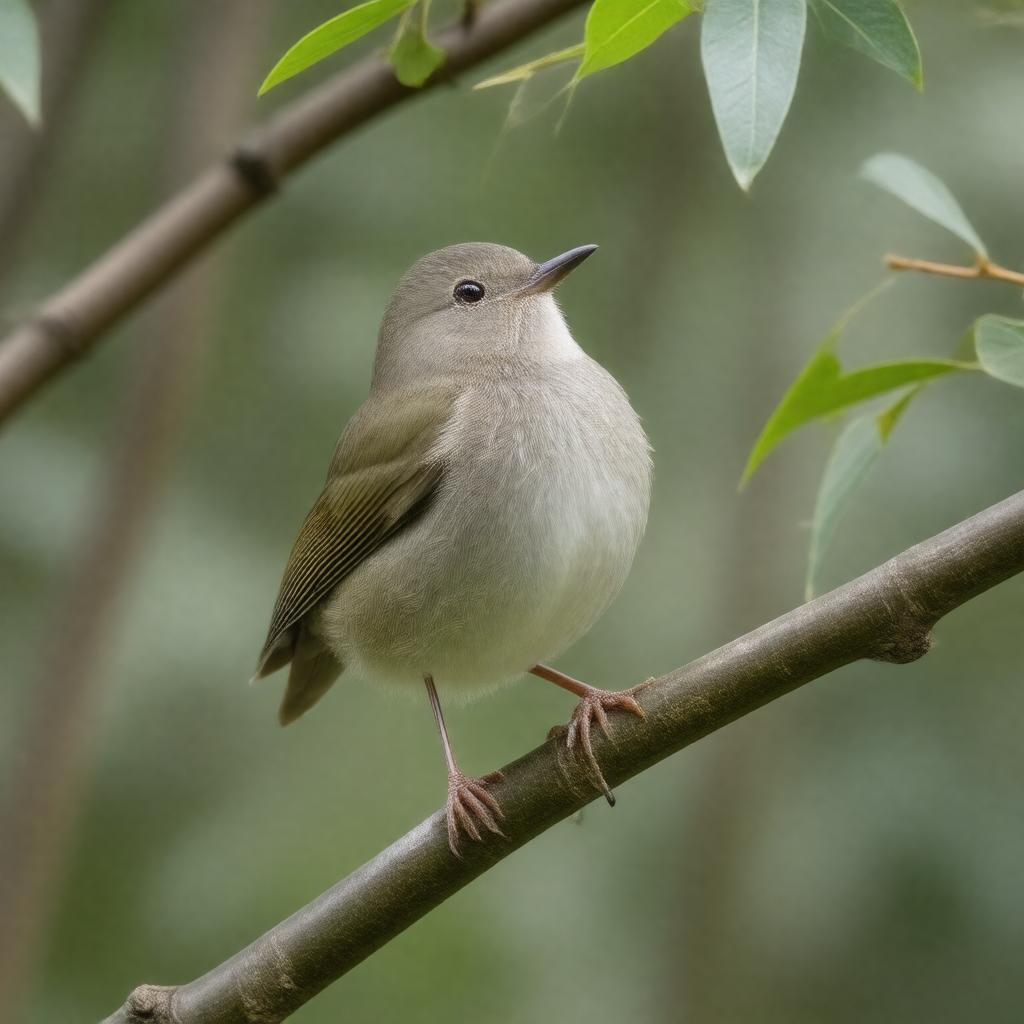Prompt
Generate an image of a Japanese bush warbler (Horornis diphone) perched on a branch in a bamboo thicket, surrounded by lush greenery, with a subtle blurred background to emphasize the bird's distinctive features and vibrant plumage, in a realistic and detailed style reminiscent of nature photography, with the bird possibly singing, showcasing its notable distinctive song.

